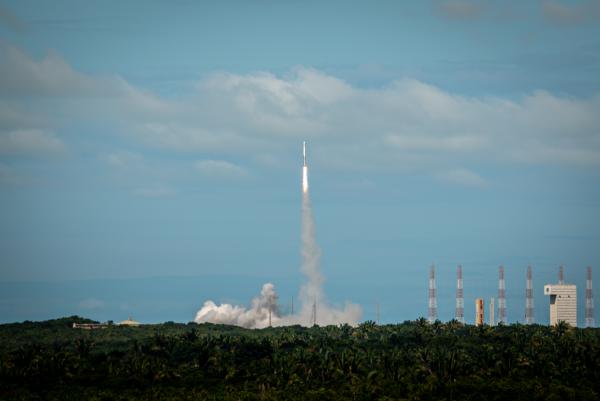South Korea’s HANBIT-TLV rocket was launched on Sunday, 19, from the Alcântara Launch Center (CLA), in the Brazilian state of Maranhão.
The vehicle carried on board a payload 100% developed in Brazil in a flight that lasted just over four minutes.
The rocket launch from Alcântara is part of Operation Astrolabio, a partnership between the Brazilian Air Force (FAB) Department of Aerospace Science and Technology (DCTA) and the South Korean company Innospace.

This is the first time a private company has carried out this activity in Brazil.
The launch marks a new chapter in space activity in the country.
From this launch on, the expectation is that CLA will start operating several other commercial launches that are under negotiation.
“The success of this binational launch, involving Brazil and South Korea, ratifies that the center is competent, both from the technical and operational point of view and from the administrative point of view, to carry out domestic and foreign rocket launches at practically any time of the year, with precision and safety,” said Brigadier Luciano Valentim Rechiuti, from the Aerospace Science and Technology Department.
“The center has specialized and highly qualified teams, as well as fully operational infrastructure and systems for preparation, launch, and tracking.”
Watch the moment of the launch.
A FAB, em parceria com a empresa sul-coreana @innospacecorp, realizou, hoje (19/03), às 14h52, o lançamento do foguete HANBIT-TLV, que transportou carga útil 100% brasileira. A Operação Astrolábio aconteceu a partir do Centro de Lançamento de Alcântara, no Maranhão. pic.twitter.com/ytyRlGyLue
— Força Aérea Brasileira 🇧🇷 (@fab_oficial) March 19, 2023
The South Korean HANBIT rocket has a 100% Brazilian payload.
The central differential of the vehicle is the unprecedented use of hybrid propulsion technology as rocket fuel in this category.
In addition to this technology, the rocket uses an electric pump fueling system, i.e., with fuels based on liquid oxygen and a paraffin mixture, which provides a stable chemical composition, faster manufacturing, and lower cost.
The vehicle is equipped with a payload called the Inertial Navigation System (Sisnav), developed by military and civilian professionals at the Institute of Aeronautics and Space, part of DCTA.
Sisnav is an essential Brazilian technological experiment for autonomous rocket navigation, which may allow Brazil to move towards independence in developing vehicles for launching satellites of all types.
The vehicle does not pass through inhabited areas.
The impact points of the fuel and payload, which fall into the Atlantic Ocean, occur more than 50 kilometers from the coast, offering no danger to the population.
With information from Revista Oeste

